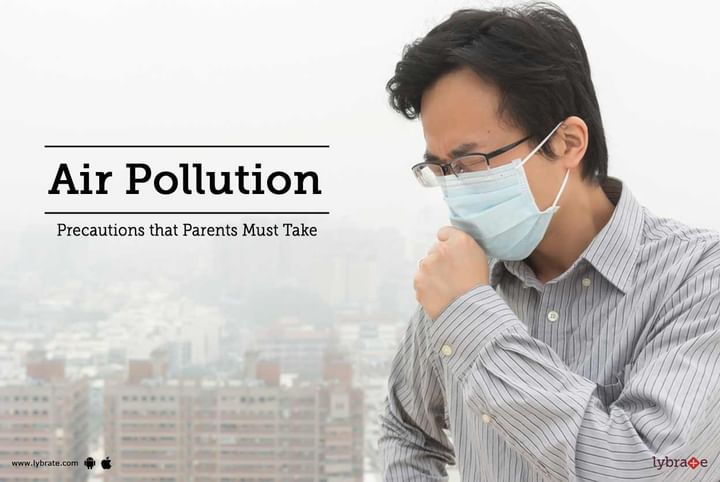Air Pollution - How it Affects Your Health?
Every moment from the minute we are born, we are constantly inhaling and exhaling air. However, we rarely think twice about the quality of the air that we breathe. Ideally, we should be inhaling air rich in oxygen, but today, the air we breathe is contaminated with carbon dioxide, particulate matter etc. as a result of air pollution. Breathing this polluted air can be extremely detrimental to your overall health.
What is air pollution?
Air pollution can be defined as the introduction of gases, fumes and dust particles that distort the natural balance of elements in the air. Pollution in the air spreads easily and is difficult to avoid. These elements that pollute the air can be classified as primary and secondary pollutants. Primary pollutants are gases or particles, such as carbon monoxide, sulphur dioxide, nitrogen oxides etc. that are directly emitted into the air. Pollutants that develop as a result of interaction between primary pollutants in the air are known as secondary pollutants. Smog, such as what is enveloping the Northern India today is one of the most common examples of this type of air pollution.
How is it measured?
Air pollution is measured by measuring the amount of pollutants such as Carbon monoxide, Ozone, Nitrogen dioxide, particulate matter with a diameter less than 10 micrometres and particulate matter with a diameter of less than 2.5 micrometres. This data is collected through monitoring stations in various cities and measured in the form of micrograms or milligrammes per cubic meter. For carbon monoxide and ozone this reading is taken as an average concentration of pollutant over 8 hours while for others it is averaged against 24 hours. This can be seen online on India’s air quality index.
What is the significance of air quality index(AQI)?
The air quality index is a visual representation of pollutant levels in the air around you. A quick glance at this colour coded map can tell you if the air outside your home is likely to harm you or not. The code is broken down into 6 levels ranging from green that signifies minimal impact to red that marks pollution levels that can harm a healthy person and seriously impact those who are already ill. The higher the AQI, the higher the level of air pollution.
How does it affect your health?
Watery eyes, coughing and wheezing are the most common results of breathing polluted air. The risk of falling ill due to air pollution is dependent on the pollutant type and amount and duration of exposure to the polluted air. Heart disease and lung disease patients, pregnant women and children under the age of 14 are most vulnerable to diseases caused by air pollution. Air pollution can aggravate respiratory and cardiovascular illnesses, damage cells in the lungs and put the heart and lungs under additional stress to pump oxygen. Long-term exposure to polluted air can cause the lungs to age faster, lead to decreased lung capacity and functioning and can also result in the development of asthma, bronchitis and even cancer. It can also cause heart attacks and shorten the lifespan of a person.
How can you protect yourself against the ill effects of air pollution?
Looking at the AQI levels of your city every morning should become a habit for city dwellers. If the pollutant levels are excessively high, it is advisable to stay indoors. On an average, air pollution and day temperatures have a direct relationship. Hence, avoid scheduling outdoor activities for the afternoons. Avoid routes that have heavy traffic and try carpooling or walking, biking etc. In areas where it is not possible to escape the pollution, use a handkerchief or face mask over your nose and mouth to filter the air. Eating fruits and vegetables rich in antioxidants can help strengthen your immune system and shield your body against the ill effects of air pollution.
Within your house, clean the air conditioner and heater filters regularly and vacuum the house often. On days when the AQI is low, open your windows and allow fresh air to circulate. Sheets and stuffed toys are magnets for particulate matter in the air and hence should be washed often. Do not burn trash or allow people around you to do so.
Air pollution is a big problem to tackle and in order to fight it, requires effort from each and every individual. Take a look at the amount of pollution you generate and try reducing it. Car pooling and using public transport are often the first steps towards reducing your carbon emissions. Wherever possible use hand powered or electrically powered equipment instead of gasoline powered ones. Simply stating that the air is polluted will not help; get involved with the efforts being made in your locality to clean up the sources of this pollution. Remember that if you do not do your bit to fight this menace, it is you that will be harmed by it.



+1.svg)
